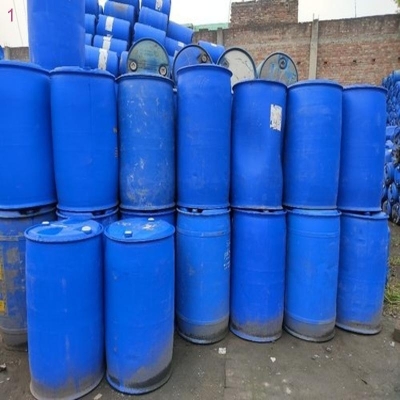-
Categories
-
Pharmaceutical Intermediates
-
Active Pharmaceutical Ingredients
-
Food Additives
- Industrial Coatings
- Agrochemicals
- Dyes and Pigments
- Surfactant
- Flavors and Fragrances
- Chemical Reagents
- Catalyst and Auxiliary
- Natural Products
- Inorganic Chemistry
-
Organic Chemistry
-
Biochemical Engineering
- Analytical Chemistry
-
Cosmetic Ingredient
- Water Treatment Chemical
-
Pharmaceutical Intermediates
Promotion
ECHEMI Mall
Wholesale
Weekly Price
Exhibition
News
-
Trade Service
In recent years, energy storage has ushered in great development
as an important technical support for improving the stability of renewable energy.
At present, the industry is most optimistic about lead-carbon batteries, flow batteries and lithium batteries for three kinds of energy storage technology, but the cost of flow batteries is higher, and the technical maturity is far less than the other two battery technologies, and lithium-ion batteries have some problems in the consistency of single batteries, so some insiders believe that lead-carbon batteries may become the most feasible energy storage technology
.
Lead-carbon battery is an advanced technology battery
evolved from traditional lead-acid batteries.
Lead-carbon battery can combine lead-acid battery and supercapacitor into one, and maintain the advantage of high specific energy of lead-acid battery in the technology of short-term large-capacity charging of supercapacitor, so as to have good charge and discharge performance and long service life
.
In addition to performance advantages, lead-carbon batteries also have obvious advantages
in cycle life, cost performance, safety, low temperature performance, production and recycling process.
In recent years, lead-carbon battery technology has been greatly developed, and many domestic battery companies are gradually improving the layout
of lead-carbon battery fields.
Although lead-carbon batteries have developed rapidly in technology and application, the performance of carbon materials is still one of the main factors affecting the overall performance of
lead-carbon batteries.
Therefore, the in-depth study of the mechanism of action of carbon materials in lead-carbon batteries will further improve the performance of
lead-carbon batteries.
In the future, the in-depth research and application development of high-performance carbon materials will still become the focus of related research work, which will further improve the performance of lead-carbon batteries and realize their large-scale application
in energy storage and other fields.
In recent years, energy storage has ushered in great development
as an important technical support for improving the stability of renewable energy.
At present, the industry is most optimistic about lead-carbon batteries, flow batteries and lithium batteries for three kinds of energy storage technology, but the cost of flow batteries is higher, and the technical maturity is far less than the other two battery technologies, and lithium-ion batteries have some problems in the consistency of single batteries, so some insiders believe that lead-carbon batteries may become the most feasible energy storage technology
.
Lead-carbon battery is an advanced technology battery
evolved from traditional lead-acid batteries.
Lead-carbon battery can combine lead-acid battery and supercapacitor into one, and maintain the advantage of high specific energy of lead-acid battery in the technology of short-term large-capacity charging of supercapacitor, so as to have good charge and discharge performance and long service life
.
In addition to performance advantages, lead-carbon batteries also have obvious advantages
in cycle life, cost performance, safety, low temperature performance, production and recycling process.
In recent years, lead-carbon battery technology has been greatly developed, and many domestic battery companies are gradually improving the layout
of lead-carbon battery fields.
Although lead-carbon batteries have developed rapidly in technology and application, the performance of carbon materials is still one of the main factors affecting the overall performance of
lead-carbon batteries.
Therefore, the in-depth study of the mechanism of action of carbon materials in lead-carbon batteries will further improve the performance of
lead-carbon batteries.
In the future, the in-depth research and application development of high-performance carbon materials will still become the focus of related research work, which will further improve the performance of lead-carbon batteries and realize their large-scale application
in energy storage and other fields.







